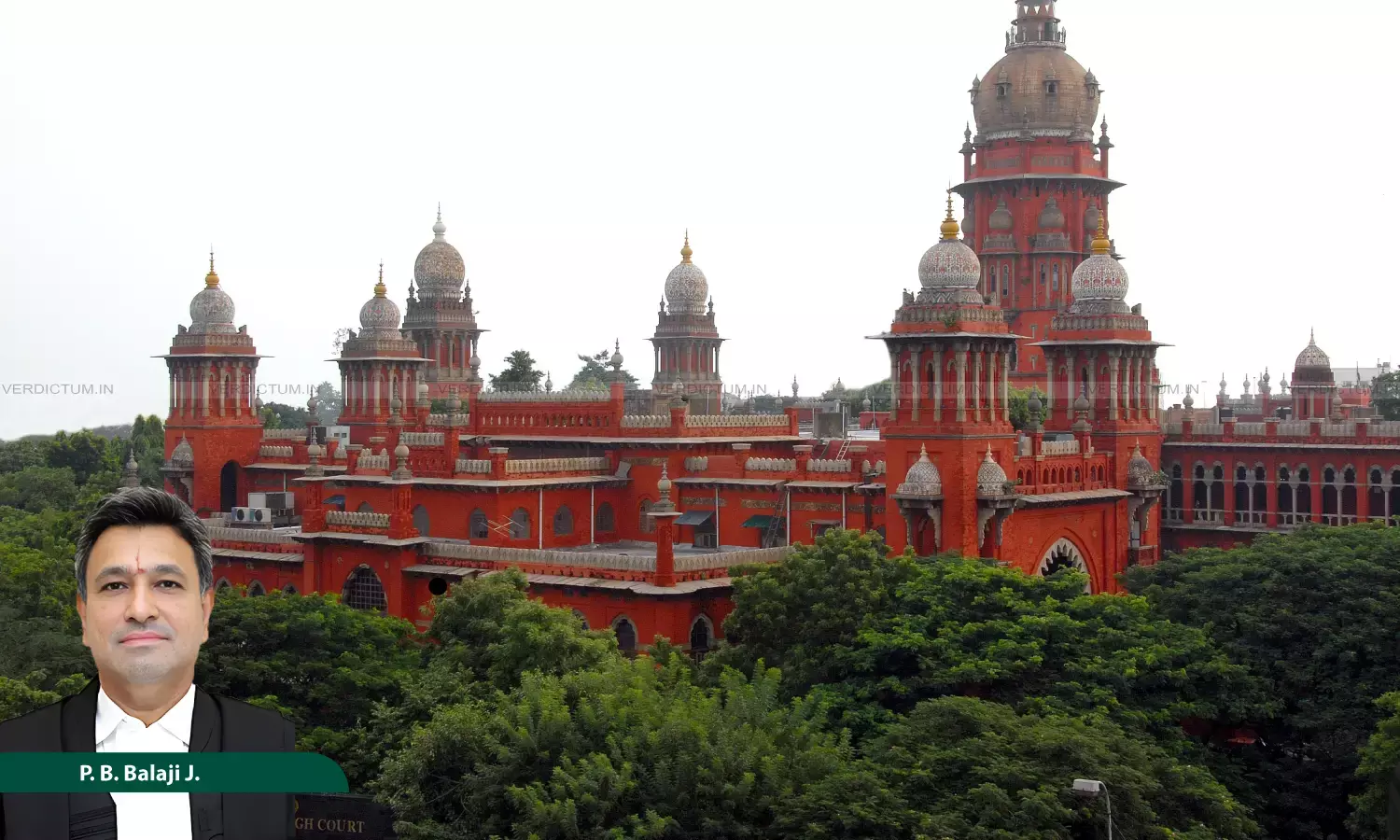Family Courts Can Waive Mandatory Waiting Period To File Mutual Divorce Petition U/S.10A Indian Divorce Act: Madras High Court
The Madras High Court was considering a Revision Petition against an order of the Family Court whereby Mutual Divorce Petition was dismissed on the ground that Petition filed before completion of two years from the date of separation is not maintainable.

Justice P.B Balaji, Madras High Court
The Madras High Court has held that Family Court is entitled to waive the mandatory waiting period under Section 10A of the Indian Divorce Act.
The Court observed that compelling parties in mutual agreement divorce to wait until the expiry of cooling-off period only increases their agony.
The Court was considering a Revision Petition against an order of the Family Court whereby Mutual Divorce Petition was dismissed on the ground that Petition filed before completion of two years from the date of separation is not maintainable.
The single judge bench of Justice P.B Balaji observed, "I also find that both the petitioners have filed separate affidavits even in this revision, affirming their decision to go separate ways. The interest of any children is also not involved in the present case, since the parties were not blessed with any issues and both the petitioners have categorically asserted that the relationship has become irreconcilable and distressing. In such circumstances, compelling the petitioners to wait for the mandatory period to expire would only further increase their agony. The petitioners have also stated that their decision is voluntary and only based on their free will and there is no fraud, collusion or undue influence brought upon them to file the mutual consent divorce petition."
The Petitioner was represented by Advocate G.R.Deepak.
Facts of the Case
Counsel for the Petitioners stated that the parties have agreed to present the mutual consent divorce petition on account of irreconcilable differences and misunderstandings and also in view of the marriage having been irretrievably broken down. It was further submitted that the mandatory period of one year of separation has not lapsed in the present case.
The Counsel contended that the provisions of Section 10A, setting out the mandatory waiting period has been struck down by the Division Bench of the Kerala High Court in Anup Disalva and Another vs Union of India as unconstitutional and violative of fundamental rights.
He further placed reliance on Supreme Court's decision in Shilpa Sailesh vs Varun Sreenivasan, 2023 wherein it was held that mandatory six months waiting period under Section 13B of the Hindu Marriage Act can be dispensed with by the Courts, upon circumstances shown to the satisfaction of the Court.
Reasoning By Court
The Court noted that though the judgment of the Kerala High Court may not have a binding precedentiary value, the judgment will definitely have persuasive value, for this Court to take note of the ratio laid down by the Division Bench.
"Even though there is no decision of this Court toeing the same lines of the Kerala High Court, striking down the provisions of Section 10A regarding the mandatory waiting period, considering the import of the decision of the Hon'ble Supreme Court in Shilpa Sailesh’s case as well as the Hon'ble Division Bench in the Kerala High Court, the Family Court is certainly entitled to waive the mandatory waiting period and cannot compel the parties to sit through the same before presenting a petition for divorce in the form of mutual consent, under Section 10A of the Divorce Act", the Court held.
The Petition was accordingly allowed.
Cause Title: Shivkarthik G.S vs. Nil Parties
Click here to read/ download Order

